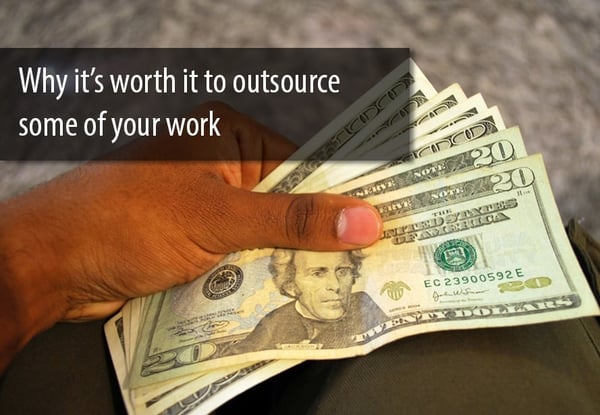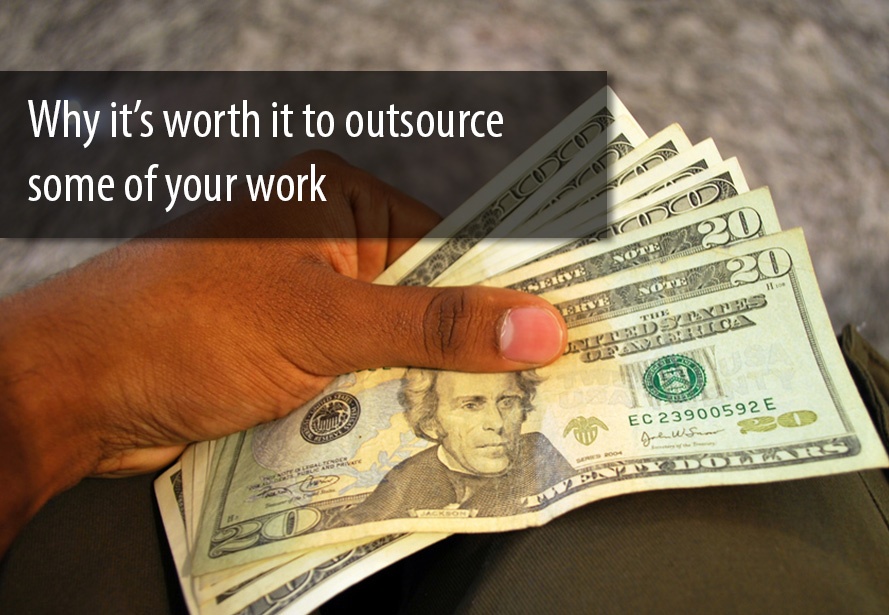Small Business Strategy: When and Why to Stop Bootstrapping

SMALL BUSINESS STRATEGY 101: BOOTSTRAPPING
We've all been there. It's Thursday and I'm only a third of the way through my to-do list for the week. Running a small business is a lifestyle choice and a juggling act, constantly re-prioritizing and stretching our time and money as far as it will go.
Bootstrapping is a way of life for a start-up. Many experts say it's key to achieving success sooner versus later because it keeps you hungry, as opposed to those startups with pocketfuls of money. But as any business owner who has tried to scale their business knows, bootstrapping only gets you so far. Eventually you need to spend money on outside help if you want to get to the next level.
WHY OUTSOURCE?
Deciding to bite the bullet and spend your precious cash on outside help is not a decision taken lightly by most of us. But in certain situations it can definitely pay off. Following is a list of guidelines that we believe are important considerations to use when deciding whether to keep on keepin' on or rather make an investment to move our business forwards.
1. You Don't Know What You Don't Know
I compare this to the feeling I'd have if I had to file my own taxes. I understand accounting and finance fairly well, but as far as taxes are concerned, I wouldn't even know what questions to ask. Lacking the expertise in-house isn't the end of the world because you could always hire someone who is a subject matter expert, right? That's true, however even if you hire someone, you need to at least know what you don't know so that you can effectively manage them.
If that's not the case, you're often better off outsourcing the function to someone who is an expert AND who you trust. Let's take IT as an example. If you were the company CEO, who doesn't keep up with changes in technology, software and hardware, how would you know how to prioritize the budget that your IT manager has requested? In some cases it could be better to outsource the role to a company you trust. They in turn will hopefullly help educate you in the process, so that as time goes one, you can also make more educated decisions about your IT.
2. You Simply Don't Have the Bandwidth
I recently read this Fast Company article, "You Can Do Anything - But Not Everything" (which I think I'm going to make my personal mantra). The author says that getting things done and being productive makes people feel good. A classic example would be the feeling you have before you leave for vacation and you've had a super productive week completing tasks, cleaning off your desk and de-cluttering. It makes us feel good to know our house is in order.
But not getting things done has the opposite effect. Having a to-do list with the same projects on it, week after week, weighs us down and makes us less effective in EVERYTHING we do. Aaagghhh!!!
No matter where we live, where we work or what language we speak, we all have the same 24 hours in a day. We need to be realistic of what is actually possible to accomplish through our own efforts in those 24 hours, and then make a plan of how to get the rest of the items checked off; either by delegating to someone else or just taking them off our priority list and being ok with the fact those things might never get done.
3. You Want to Focus Your Efforts Where They Count
Maybe you have the expertise in-house but it's not your core focus, or you've got a team of smart people and you know that between all of you, you can figure it out. But is that the smartest use of your time? Does it take advantage of your competitive edge in the things you really focus on? What else will have to be neglected if you have to take time to learn something new in depth?
If we use digital marketing as an example here, what other parts of the business will you have to take your eye off of in order to focus on your web traffic, blogging and calls to action? Will you need to spend less time following up on leads? Or less time managing existing projects? Is that worth it? Maybe it depends on whether the role you need is a quick one-off job or an ongoing task? Sometimes a good option is to get the experts in to help you and then train your staff over time to manage that function.
4. Someone Else Can Do It Better Than You
5. You Don't Need a Full-time Person Dedicated to this Function
As an inbound agency, we need to produce a lot of content, both for ourselves and for clients. When we've been in a growth phase, we've often hired freelance writers to fill in our gaps. This has been key to scaling our growth.
Now that we've grown to a point where we are creating enough content, we're hoping to add a full-time writer to our staff.
AFTER YOU'VE PULLED THE TRIGGER
The most important point I had to learn (and continually remind myself) after deciding to invest in an outside expert is to let them do their job! It's not always easy to back-off, but empowering people to do what we hired them for, and make good use of the additional time we now have available, gets better results for everyone.

